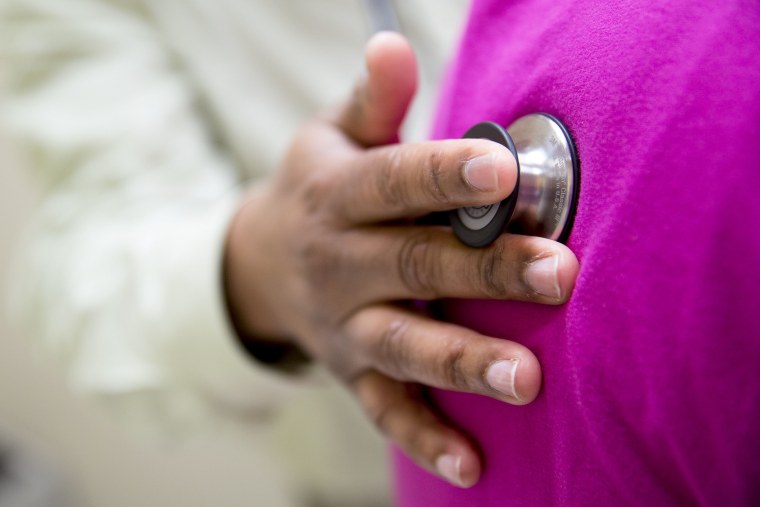The face of the HIV and AIDS crisis is undeniably black.
If current diagnosis rates continue, approximately one in 20 black men, one in 48 black women and one in two black gay and bisexual men will be diagnosed with HIV during their lifetimes, according to Centers for Disease Control and Prevention projections.
CDC estimates show that African-Americans account for almost half (44 percent in 2010) of all new infections and represent more than one-third (40 percent or 498,400 persons in 2013) of all people living with HIV.
While the disease that emerged in the late 80s as a “white gay male disease” has clearly reached epidemic levels in black and brown communities, one University of Southern California scientist insists that stereotypes – ones consciously and unconsciously perpetuated by healthcare providers can be internalized by members of marginalized groups, such as people of color, women who seek to have children later in life and older, poor and LGBTQ people – and it may literally be making them sicker.
With collaborator Dr. Adam Fingherhut of Loyola Marymount University, Dr. Cleopatra Abdou, was the first to lead an experimental study about how stereotypes – specifically “healthcare stereotype threat” – is directly linked to health outcomes among marginalized groups, including black people.

In commemoration of World AIDS Day 2016, Dr. Abdou, an assistant professor of gerontology and psychology, spoke to NBCBLK’s Chandra Thomas Whitfield about the findings from their groundbreaking work.
What exactly is “healthcare stereotype threat?”
A healthcare stereotype threat is when individuals with stigmatized identities – be it about race, socioeconomic status, gender, age, sexual orientation and even weight or maternal age - worry about being judged by, or confirming, a widely believed stereotype in healthcare settings, causing even greater anxiety than is commonly experienced in medical settings, affecting their experiences with healthcare providers.
Common stereotypes include having beliefs about a particular group tending to engage in unhealthy lifestyle choices or having inferior intelligence, or negative stereotypes about sexuality and reproduction being perpetuated, often unintentionally, by healthcare professionals, the medical setting itself, or even public health campaigns.
On the patient side, I theorize that, with repeated experiences of healthcare stereotype threat, stigmatized individuals, such as black people, lose trust in physicians or delaying seeking healthcare as a way to avoid healthcare stereotype threat, which has long-term implications for their health. It is also possible that healthcare stereotypes become internalized, which is also harmful for health.
HIV and AIDS statistics in the black community are startling. What role do you think this “threat” is playing?
The HIV and AIDS epidemic is likely a critically important application of healthcare stereotype threat. Early detection of HIV is hugely important for treatment purposes and also for protecting against the spread of HIV and AIDS, however, if people avoid seeking health care because they are mistrustful of physicians or the medical community in general, or simply because they want to spare themselves the incredible anxiety they feel every time they visit a doctor because they are experiencing healthcare stereotype threat, then HIV and AIDS is not going to be detected in a timely manner.
...the same people who are most susceptible to the experience of healthcare stereotype threat are also at greatest risk for HIV and AIDS.
It may be that it won't be detected until symptoms reach the point that they can no longer be ignored. This may make treatment much more complex and also may result in others contracting the disease. It is highly unlikely that it is just a coincidence that the same people who are most susceptible to the experience of healthcare stereotype threat are also at greatest risk for HIV and AIDS.
You have said public health campaigns often reinforce negative stereotypes. How can high-risk groups be educated without stereotyping?
It is absolutely possible. There are definitely real health concerns in specific communities that need to be addressed, but how we communicate those concerns is key; it’s all about re-framing the messages, moving away from fear and shame and, instead, focusing on uplifting, positive messages that focus on the potential that is created when we take care of our health.
It’s all about re-framing the messages, moving away from fear and shame and, instead, focusing on uplifting, positive messages that focus on the potential that is created when we take care of our health.
For example, instead of a poster showing an older woman with a positive pregnancy test listing all of the alarming statistics about the risks of having children later in life, show the same image with a message that promotes awareness in a positive way, such as, ‘knowledge is power: learn about your fertility so that you can have the family and the life of your dreams.’
What impact do you hope that your research will have?
I want people to know that next time they’re in the doctor’s office waiting room and experiencing anxiety that it’s not necessarily a feeling that is unique to them. Change starts with education. My goal is to transform the way that healthcare is delivered and the way that patients and providers interact with each other in healthcare settings. This is cultural competency redefined.
Click here to view the free healthcare stereotype threat curriculum Dr. Abdou developed for Anthem Blue Cross/Blue Shield.
Follow NBCBLK on Facebook, Twitter and Instagram
This article was written/produced with the support of a journalism fellowship from New America Media, the Gerontological Society of America and the Commonwealth Fund.

